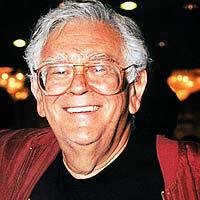Difference between revisions of "Joe Slovo"
(Added: employment, spouses, birth_date, birth_place, death_date, political_parties.) |
(desc) |
||
| (2 intermediate revisions by 2 users not shown) | |||
| Line 1: | Line 1: | ||
{{person | {{person | ||
|wikipedia=https://en.wikipedia.org/wiki/Joe_Slovo | |wikipedia=https://en.wikipedia.org/wiki/Joe_Slovo | ||
| − | | | + | |image=Slovo,j.jpg |
| − | | | + | |description=South African politician, an opponent of the apartheid system |
| + | |nationality=South African | ||
| + | |birth_name=Yossel Mashel Slovo | ||
|birth_date=1926-05-23 | |birth_date=1926-05-23 | ||
|death_date=1995-01-06 | |death_date=1995-01-06 | ||
| Line 19: | Line 21: | ||
}} | }} | ||
}} | }} | ||
| + | '''Joe Slovo''' was a South African politician, and an opponent of the [[apartheid]] system. A [[Marxist-Leninist]], he was a long-time leader and theorist in the [[South African Communist Party]] (SACP), a leading member of the [[African National Congress]] (ANC), and a commander of the ANC's military wing [[Umkhonto we Sizwe]] (MK). | ||
| + | |||
| + | A South African citizen from a Jewish-Lithuanian family, Slovo was a delegate to the multiracial [[Congress of the People (1955)|Congress of the People]] of June 1955 which drew up the [[Freedom Charter]]. He was imprisoned for six months in 1960, and emerged as a leader of Umkhonto we Sizwe the following year. He lived in exile from 1963 to 1990, conducting operations against the apartheid régime from the United Kingdom, [[Angola]], [[Mozambique]], and [[Zambia]]. In 1990 he returned to South Africa, and took part in the negotiations that ended apartheid. He became known for proposing the "sunset clauses" covering the 5 years following a democratic election, including guarantees and concessions to all sides,<ref>http://www.sacp.org.za/people/slovo/negotiations.html</ref> and his fierce [[non-racialism|non-racialist]] stance. After the elections of 1994, he became Minister for Housing in [[Nelson Mandela]]'s government. He died of [[cancer]] in 1995.<ref>[https://www.nytimes.com/1995/01/07/obituaries/joe-slovo-anti-apartheid-stalinist-dies-at-68.html Joe Slovo, Anti-Apartheid Stalinist, Dies at 68], NY Times, 1995-01-07.</ref> | ||
| + | |||
{{SMWDocs}} | {{SMWDocs}} | ||
==References== | ==References== | ||
{{reflist}} | {{reflist}} | ||
| − | |||
Latest revision as of 14:12, 15 October 2024
(activist) | ||||||||||||
|---|---|---|---|---|---|---|---|---|---|---|---|---|
 | ||||||||||||
| Born | Yossel Mashel Slovo 1926-05-23 Obeliai, Lithuania | |||||||||||
| Died | 1995-01-06 (Age 68) | |||||||||||
| Nationality | South African | |||||||||||
| Spouse | Ruth First | |||||||||||
| Party | African National Congress, South African Communist Party | |||||||||||
South African politician, an opponent of the apartheid system
| ||||||||||||
Joe Slovo was a South African politician, and an opponent of the apartheid system. A Marxist-Leninist, he was a long-time leader and theorist in the South African Communist Party (SACP), a leading member of the African National Congress (ANC), and a commander of the ANC's military wing Umkhonto we Sizwe (MK).
A South African citizen from a Jewish-Lithuanian family, Slovo was a delegate to the multiracial Congress of the People of June 1955 which drew up the Freedom Charter. He was imprisoned for six months in 1960, and emerged as a leader of Umkhonto we Sizwe the following year. He lived in exile from 1963 to 1990, conducting operations against the apartheid régime from the United Kingdom, Angola, Mozambique, and Zambia. In 1990 he returned to South Africa, and took part in the negotiations that ended apartheid. He became known for proposing the "sunset clauses" covering the 5 years following a democratic election, including guarantees and concessions to all sides,[1] and his fierce non-racialist stance. After the elections of 1994, he became Minister for Housing in Nelson Mandela's government. He died of cancer in 1995.[2]
References
- ↑ http://www.sacp.org.za/people/slovo/negotiations.html
- ↑ Joe Slovo, Anti-Apartheid Stalinist, Dies at 68, NY Times, 1995-01-07.